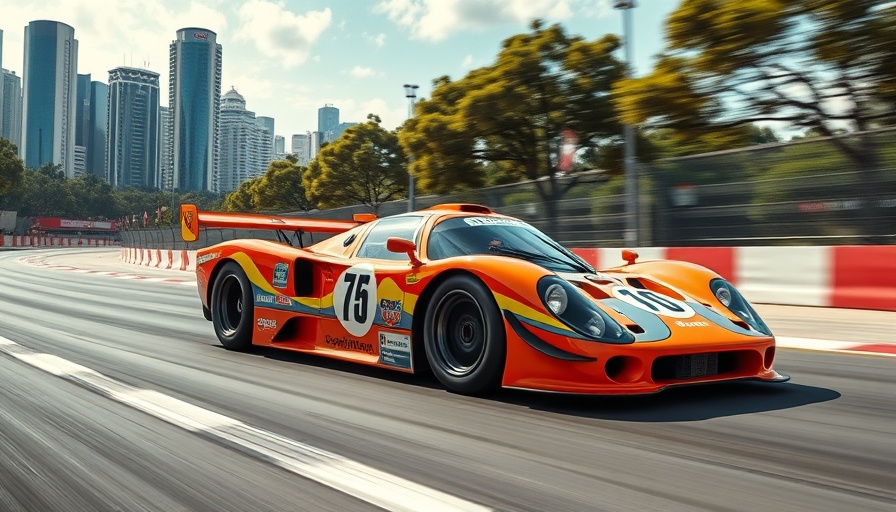
Chicago and NASCAR: A Complicated Relationship
When the NASCAR Chicago Street Race roared into Grant Park, it carried the weight of history and high expectations. From its first lap in 2023, the experience has been anything but straightforward. Dramatic weather conditions, like the smoky haze from Canadian wildfires and unexpected downpours, added to the complexity of this event. These challenges have raised an important question among locals and racing enthusiasts alike: Will the race return?
Aesthetics and Atmosphere: More Than Just a Race
For many spectators, the appeal of motorsports transcends just the competition. It’s about the visual spectacle—sleek cars, vibrant sponsorship logos, and the seemingly endless roar of engines. The Chicago backdrop adds another layer of allure, making the NASCAR Chicago Street Race a unique blend of sport and lifestyle.
NASCAR has astutely utilized Chicago’s iconic skyline to enhance its image, transforming the race into more than just an event. As cars zip down the streets, the views of new architectural marvels like the St. Regis and Trump Tower juxtaposed with historic landmarks act as a backdrop that emphasizes the race's importance. The dramatic aerial shots that broadcast to millions globally serve to elevate Chicago's position in the sports world.
Historical Context: A Legacy of Racing
Chicago’s relationship with auto racing is not new; it stretches back to the nation’s first automobile competition held on Thanksgiving Day in 1895. This rich history adds depth to the city’s current embrace of NASCAR. Previously, events hosted at Soldier Field and the defunct Chicago Motor Speedway have laid a foundation for this modern iteration of racing in the city.
Yet, previous races lacked the dynamic city backdrop that today’s NASCAR Chicago Street Race offers, allowing for a redefined interaction between the sport and the city. As racing returns to its historic roots, balancing tradition and evolution remains key.
The Community's Perspective: Noise and Street Closures
Despite the excitement the race brings, local residents often face challenges. Increased noise pollution, street closures weeks before and after the event, and a visitor influx can create tension among people who aren’t inherently NASCAR fans. Many locals may question whether the economic benefits of hosting such an event justify the disruptions to their day-to-day lives.
This perspective is essential; as NASCAR seeks to strengthen its ties with Chicago, it must also engage with local communities. Striking a balance will be crucial if the series hopes to solidify its presence in the city.
Future Predictions: The Race’s Long-term Viability
The future of the NASCAR Chicago Street Race lies heavily on how these historical and community dynamics play out. While the event is currently a success on paper, the real test will be maintaining and growing local support in future years. Engaging local businesses, minimizing disruption, and creating more community-focused events could enhance NASCAR's appeal among city residents.
There’s also the question of embracing technological advancements. Innovations in racing technology and shifts toward sustainability could position the league to attract a broader fan demographic, helping NASCAR emerge as a more culturally relevant sport.
Conclusion: Making Connections for a Sustainable Future
As the race navigates through both community challenges and historical significance, it’s vital that NASCAR brings fans and locals together. A symbiotic relationship where the sport celebrates the vibrancy of Chicago while respecting the city's heartbeat could pave the way for its long-term success.
To remain relevant, NASCAR must actively listen to community voices and adapt. By blending tradition with innovation and fostering connections, the NASCAR Chicago Street Race may not only survive but thrive in this beautiful city for years to come.
 Add Row
Add Row  Add
Add 




Write A Comment